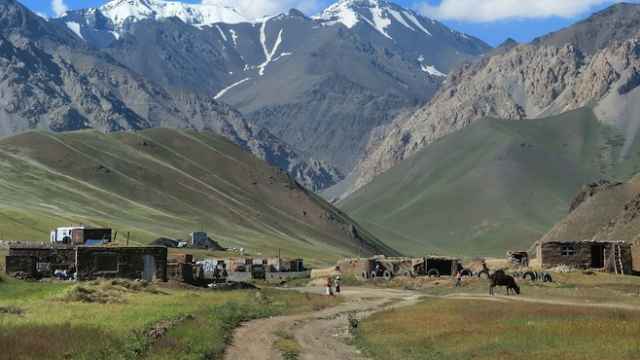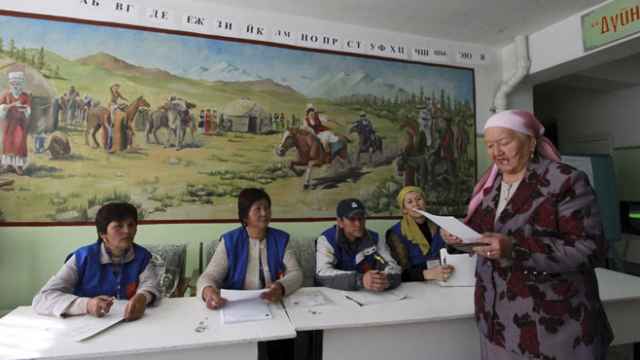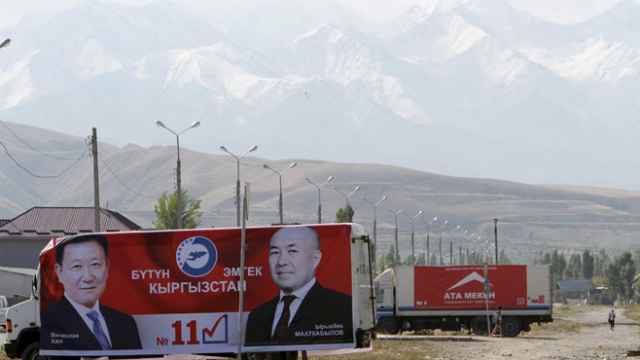Western monitors said on Monday weekend polls in Kyrgyzstan, a country struggling to build Central Asia's first parliamentary democracy, allowed lively campaigning but were marred by lack of impartial media coverage and concerns over ballot secrecy.
The mainly Muslim country of six million, which saw two presidents toppled by revolutions in 2005 and 2010, elected a new legislature on Sunday. The parliament has broader powers than those in Kyrgyzstan's autocratic regional neighbors.
"The elections were characterized by a lively campaign, but the amount of impartial information available to voters in the news was limited," monitors from the Organization for Security and Cooperation in Europe, the Parliamentary Assembly of the Council of Europe, and the European Parliament said in a report.
Russian Orbit
The run-up to the vote was overshadowed by security concerns in the volatile nation where ethnic tensions persist and radical Islam is on the rise. Russia holds a military airbase in the country, lying on a drug trafficking route from Afghanistan, and borders China and Central Asian states, including Uzbekistan.
The Social Democratic Party, which finished first with 27 percent of vote, is closely linked to President Almazbek Atambayev, though he stepped down as leader after being elected president in 2011.
The new parliament looks certain to be again dominated by a coalition of Moscow-leaning parties, spearheaded by the Social Democrats, and is likely to draw Kyrgyzstan further into Russia's orbit.
The observers said the hurried introduction of biometric registration, concerns over ballot secrecy and significant procedural problems during the vote count "tarnished what was a generally smooth election day".
"The president was highly visible during the election campaign, and one political party used his prestige to its benefit," Western monitors said.
"In a positive development, misuse of state administrative resources did not appear to be a major concern in these elections."
For the first time, finger print scanners were used to identify and verify voters, and ballot scanners provided an automated vote count in all polling stations to limit the possibility for vote rigging and increase voters' trust.
But some voters did not submit their biometric data, some because of concerns over data protection, the report said. As a result, their right to vote was de facto limited, it said.
A Message from The Moscow Times:
Dear readers,
We are facing unprecedented challenges. Russia's Prosecutor General's Office has designated The Moscow Times as an "undesirable" organization, criminalizing our work and putting our staff at risk of prosecution. This follows our earlier unjust labeling as a "foreign agent."
These actions are direct attempts to silence independent journalism in Russia. The authorities claim our work "discredits the decisions of the Russian leadership." We see things differently: we strive to provide accurate, unbiased reporting on Russia.
We, the journalists of The Moscow Times, refuse to be silenced. But to continue our work, we need your help.
Your support, no matter how small, makes a world of difference. If you can, please support us monthly starting from just $2. It's quick to set up, and every contribution makes a significant impact.
By supporting The Moscow Times, you're defending open, independent journalism in the face of repression. Thank you for standing with us.
Remind me later.





